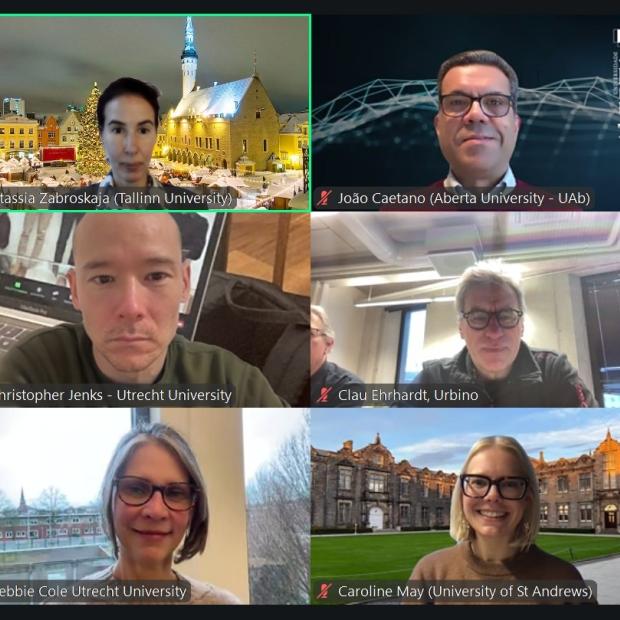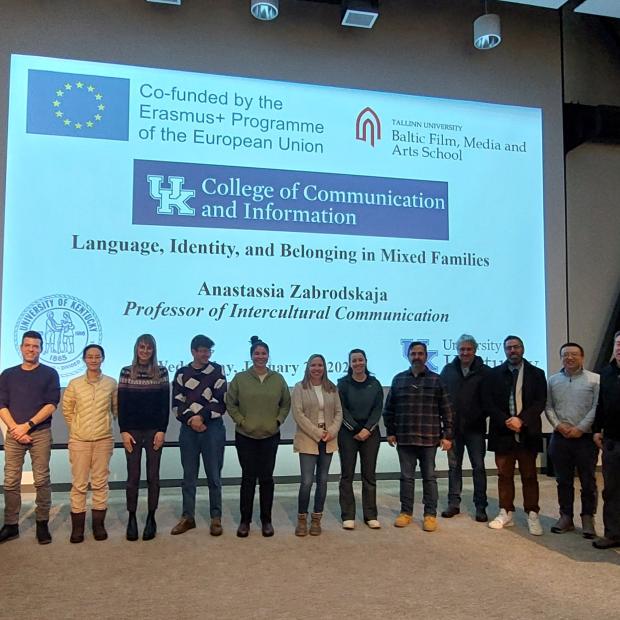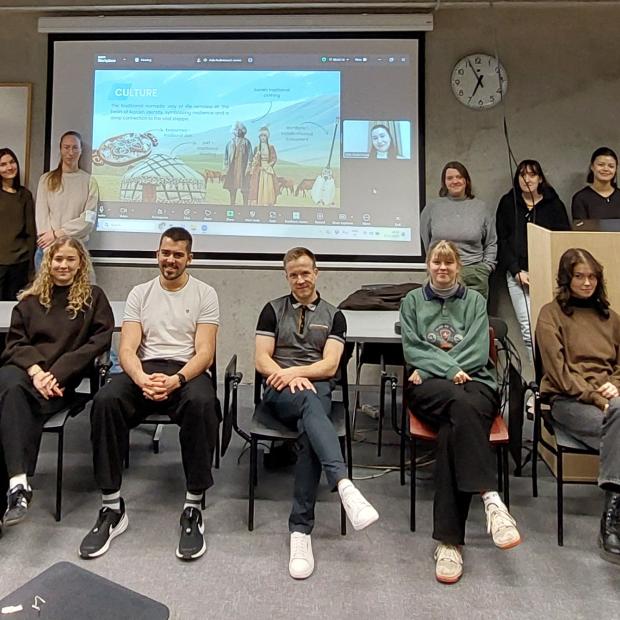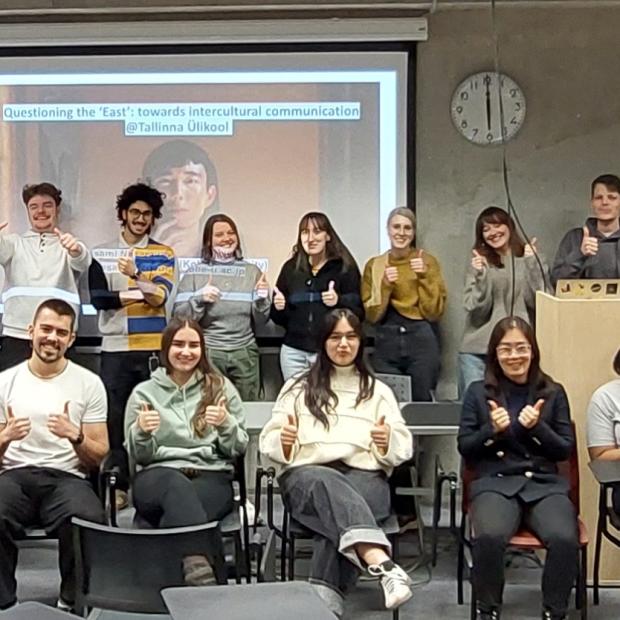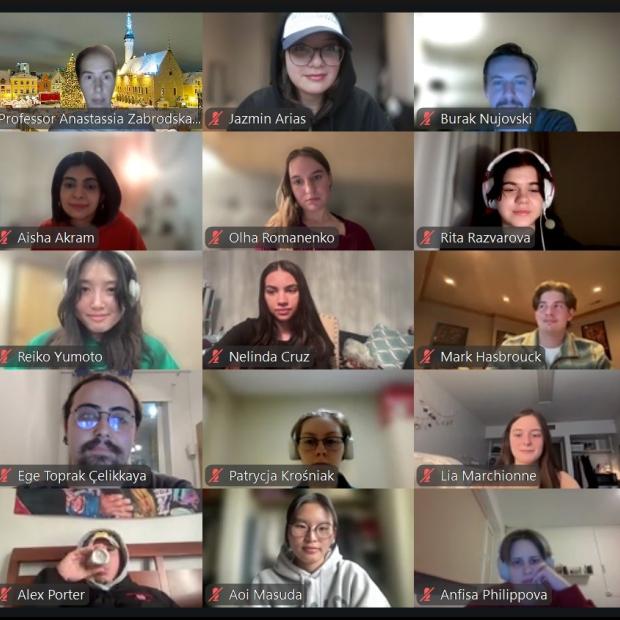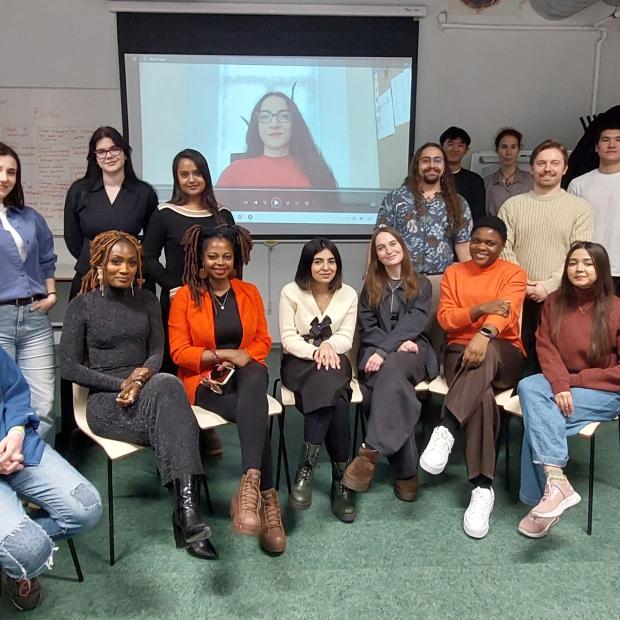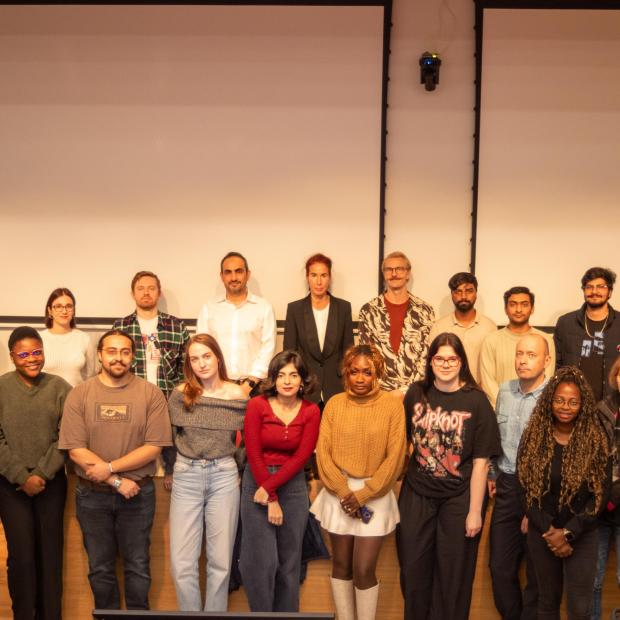ERASMUS+ Brings Expert Insights on Free Will to Tallinn University
Tallinn University Baltic Film, Media and Arts School recently hosted distinguished philosopher Professor Gabriel J.C. Mograbi from the Federal University of Rio de Janeiro (UFRJ) as part of the ERASMUS+ programme. During his visit from February 3 to February 13, 2025, Professor Mograbi engaged with Master’s students in Communication Management in thought-provoking discussions on Free Will, globalization, society, and moral responsibility.
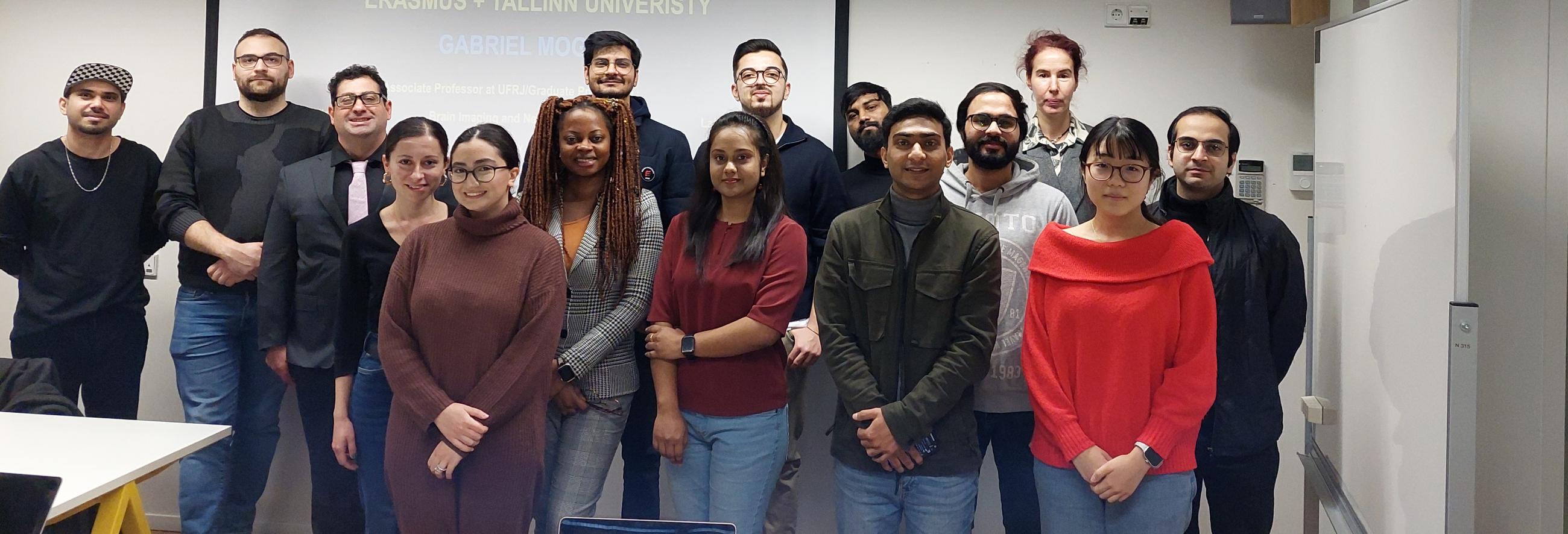
Mograbi delivered guest lectures on Free Will as part of the KOI7046.FK Globalization and Identity in Society course. The session explored critical philosophical and societal perspectives on decision-making, self-control, determinism, and cultural variations in Free Will beliefs, incorporating insights from Experimental Philosophy (X-Phi). As part of an interactive assignment, students in Communication Management were introduced to the Free Will Inventory, a tool designed to assess individuals' beliefs about Free Will. They analyzed their responses in small groups under Professor Mograbi’s guidance, fostering deep discussions on personal and societal perceptions of human autonomy.
To further support students in their analysis, individual consultations with Professor Mograbi were available, offering an opportunity for deeper engagement. Professor Mograbi’s visit was made possible through ERASMUS+ Key Action 1, which facilitates academic exchange between institutions worldwide. His contributions enriched the academic experience at Tallinn University, providing a unique interdisciplinary perspective on the intersections of philosophy, neuroscience, and artificial intelligence.
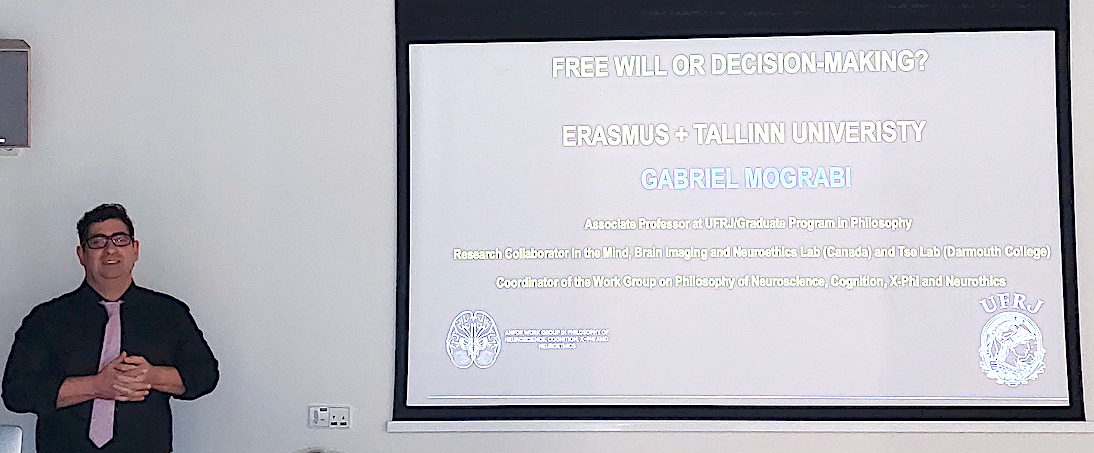
Professor Mograbi brings a wealth of expertise to his lectures, with an extensive academic background in philosophy, neuroscience, and artificial intelligence. He holds a PhD in Philosophy from the Federal University of Rio de Janeiro (UFRJ), with an internship at the University of California, Berkeley, and has completed a postdoctoral fellowship at the University of Ottawa/The Royal’s Institute of Mental Health Research. Currently an Associate Professor at UFRJ, he has also served as a Visiting Professor at Dartmouth College (2024) and the University of Ottawa (2019). His research spans experimental philosophy (X-Phi), neuroethics, and decision-making, and he leads several influential projects, including the Work Group in Philosophy of Neuroscience, AI, and Neuroethics at the Brazilian Philosophical Association (ANPOF) and the GABLab (Global Arbitration in the Brain Lab). Additionally, he serves as the Director of the Advisory Board for the AI and Robotics Ethics Society at UFRJ, further highlighting his contributions to the field.
Professor Mograbi's lectures were particularly valuable for the KOI7046.FK Globalization and Identity in Society course, as they provided interdisciplinary insights that bridged philosophy, neuroscience, and communication studies. For Master’s students in Communication Management, understanding concepts like Free Will, decision-making, and moral responsibility is essential for analyzing how individuals and societies shape identities, make choices, and interact in a globalized world.
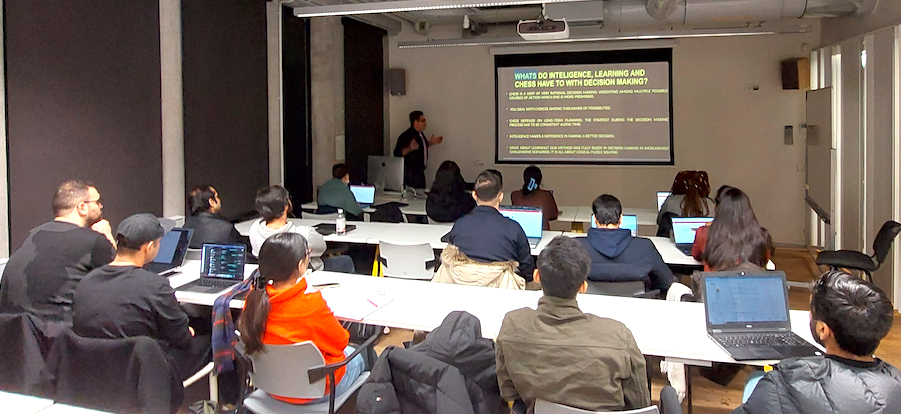
His expertise in Experimental Philosophy (X-Phi) and cultural perspectives on Free Will helped students critically examine how belief systems, cognitive biases, and ethical considerations influence communication strategies, public discourse, and media narratives. Furthermore, his discussion on AI, neuroethics, and decision-making was particularly relevant in today's media landscape, where automation, misinformation, and ethical dilemmas in digital communication are increasingly prevalent. By engaging with these topics, students gained a deeper understanding of human agency and responsibility, which is crucial for managing communication in diverse and rapidly evolving global contexts.
Professor Mograbi’s visit was made possible through the ERASMUS+ programme, which supports academic exchange and collaboration between institutions worldwide. Tallinn University expresses its gratitude to ERASMUS+ for making this long-distance academic exchange possible, bringing Professor Mograbi from Brazil to Estonia and fostering a truly global learning experience.
The text is authored by Dr. Anastassia Zabrodskaja, who is a Professor of Intercultural Communication, the Head of the Master’s Program in Communication Management at Tallinn University Baltic Film, Media and Arts School, and the Executive Director of the European Masters in Intercultural Communication (EMICC) teaching and research network.

